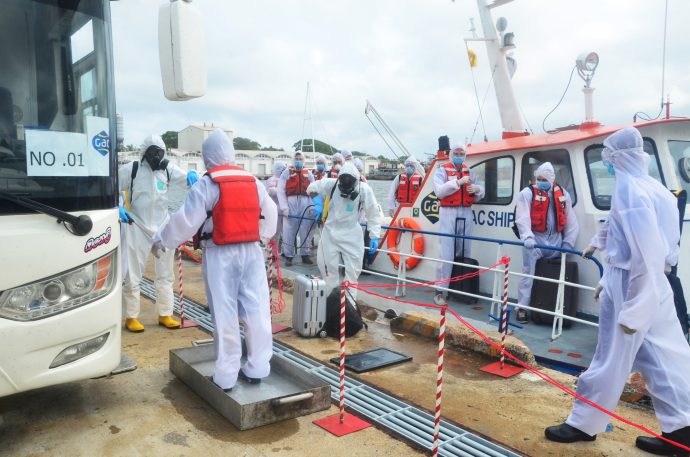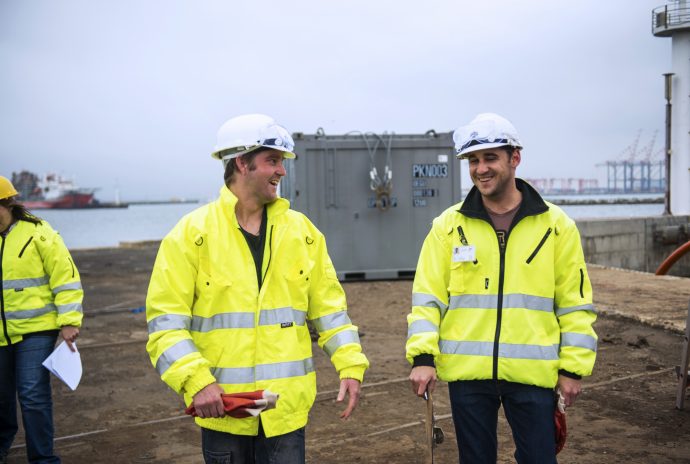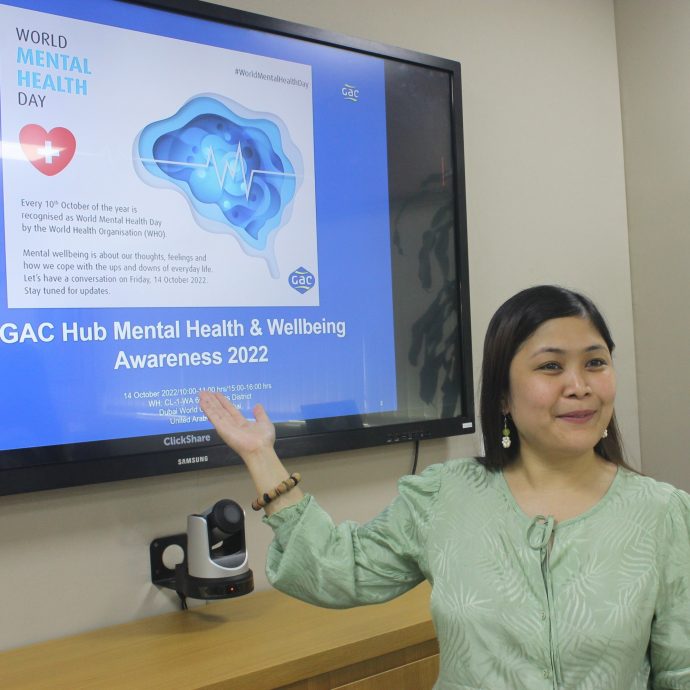Seafaring is tough, demanding work.
Factors that make seafarers’ mental health particularly vulnerable can range from separation from friends and families for months; social isolation from people from different cultures and who speak different languages while on ships; to pressures of tight deadlines, long working hours and poor sleep.
These were exacerbated during the peak COVID-19 period where new rules caused unprecedented disruptions to the work and lives of seafarers.
At one point, hundreds of thousands of them were left stranded across the globe, working aboard ships beyond the expiry of their initial contracts, unable to be relieved.
Support for seafarers
Ensuring that the welfare of workers in the maritime industry is kept to a high standard is a paramount responsibility of any shipping and logistics operation.
Recognising the shared responsibility to resolve the crew change crisis, GAC joined over 300 shipping and human rights leaders in signing the Neptune Declaration on Seafarer Wellbeing and Crew Change.

Our staff work round the clock to put individual crew members’ mind at rest whilst steering them through the procedures for signing off and on, visa and travel rules, and smooth, safe transfers. At most locations, GAC also arranges Covid-19 swab tests with transportation, related documentation and liaison with authorities. This also applies to lay-up support and dry-docking services.
To streamline processes and minimise errors and delays, digital documents such as automated data scanning of passports for crew changes were also adopted.
In a bid to help seafarers look out for themselves and each other, GAC Training & Service Solutions (GTSS) included Mental Health and Wellbeing modules in bespoke Leadership, Safe Operations Training and Masters & Chief Engineers courses.
The pandemic shone a light on the importance of the health – both mental and physical – of seafarers worldwide. But thankfully, it also prompted global attention and improvements to make wellbeing a constant principle on any day, any time of year.
One example is the Seafarer Crisis Action Team (SCAT) established by the International Maritime Organisation to help seafarers resolve various critical issues relating to repatriation, medical assistance and working conditions with support from other international organisations. To date, over 500 cases involving thousands of seafarers has been successfully handled.
Staff as greatest asset
As we care for seafarers, we do not forget to do the same for our own people. Our staff are our greatest asset and we care for them so that they can remain resilient and positive even during difficult times.

Investing in support and training for mental health makes sound commercial sense too - companies that do so witness better staff performance and lower absenteeism.
GAC fosters a corporate culture of ubiquitous awareness in line with our commitment to the United Nations’ Sustainable Development Goal 3 – Good Health & Well-Being.
To promote a desirable working environment, GAC Corporate Academy launched an online Managing Mental Well-being course to help our employees identify and work through any struggles they may be experiencing.
As a huge organisation with over 7,500 people in more than 50 countries, stretching across a wide range of cultures, we are cognisant that a ‘one size fits all’ policy covering mental wellbeing does not exist.
Instead, we encourage individual companies to tackle the subject in the most appropriate way for their people and culture.
Different approaches
In Turkish culture, mental health issues are ‘kept under the rug’. As such, GAC Turkey encourages staff to look out for one another in an informal, social way and to raise the alarm with HR if there is a serious problem. Several cases of staff suffering with stress, depression and panic attacks have been successfully handled in this way.
Similarly, GAC Malaysia encourages its staff to speak up and seek help when they need it. Staff facing personal and professional problems have been offered counselling to help prevent stress spiralling out of control.
GAC UK has twelve trained Mental Health First Aiders and their Mental Health Well-being working group meets every month to discuss initiatives and support for the staff.
Meanwhile in Dubai, GAC organised a mental health camp which covered issues like managing stress, in parallel with physical aspects like free cholesterol checks. Recognising the physical and mental benefits of exercise, the company opened a staff sports facility.

Excellent workplace culture and support for all employees, irrespective of their role, gender or level, is a cardinal underpinning of mental health. This was demonstrated by GAC Qatar's certification as among the best workplaces by Great Place to Work: the international authority on high-trust, high-performance workplace cultures.
Mental health is multifaceted and requires addressing isolated problems as they pertain to the needs of individuals. Facilitating an improved work environment in one of the most challenging industries is just one-way organisations can aspire towards meeting these crucial priorities.